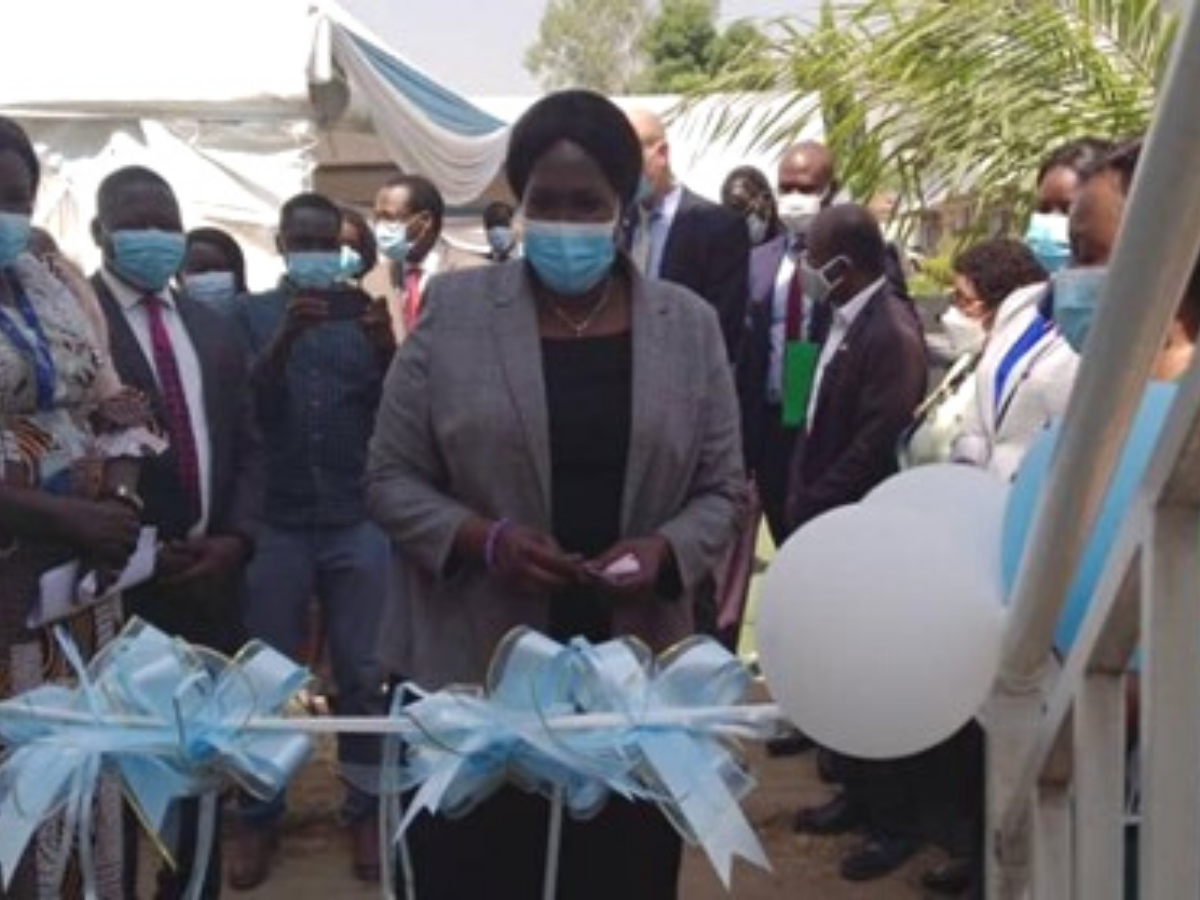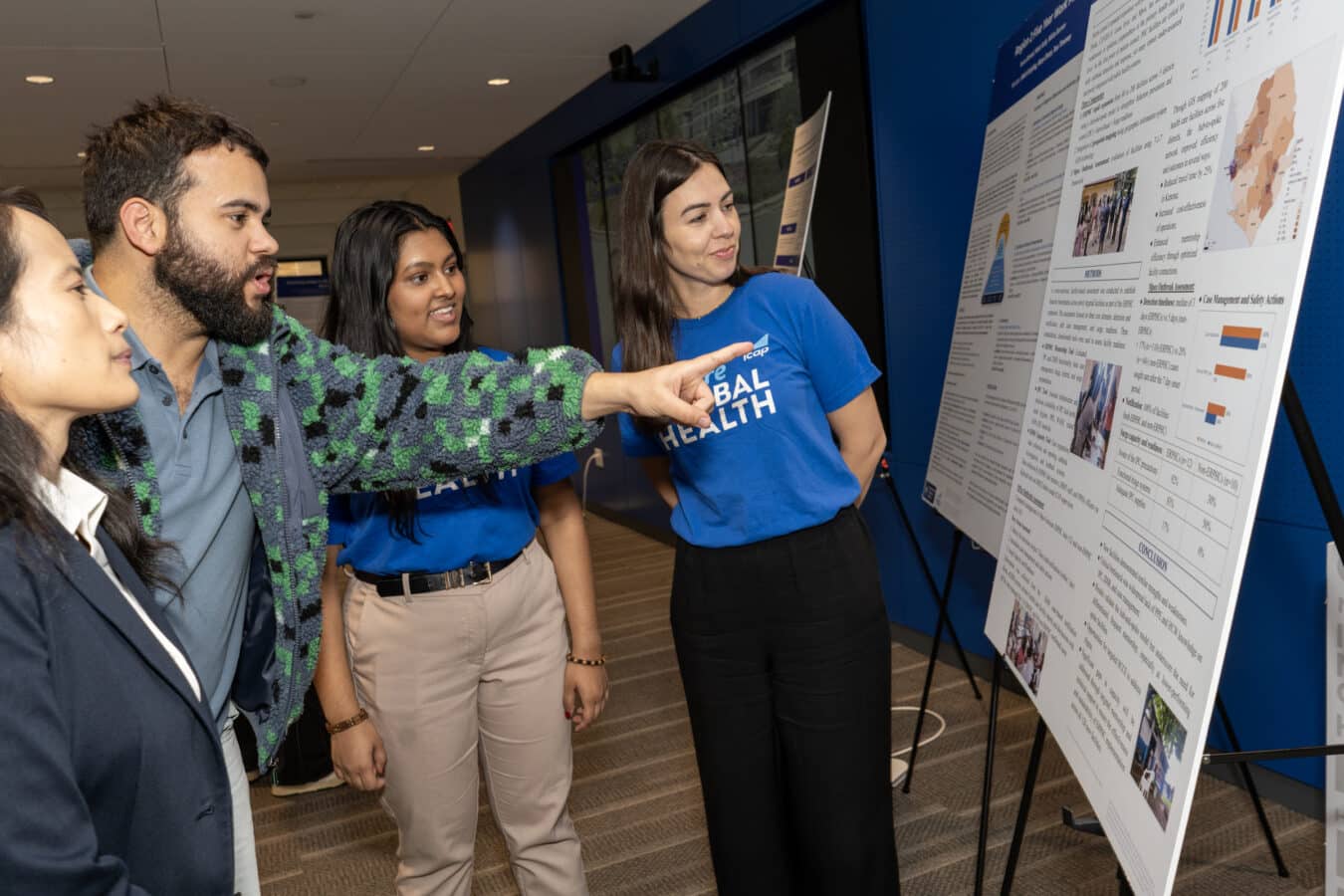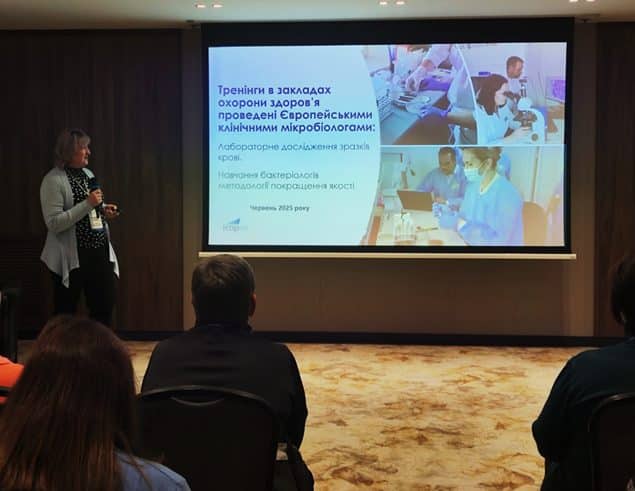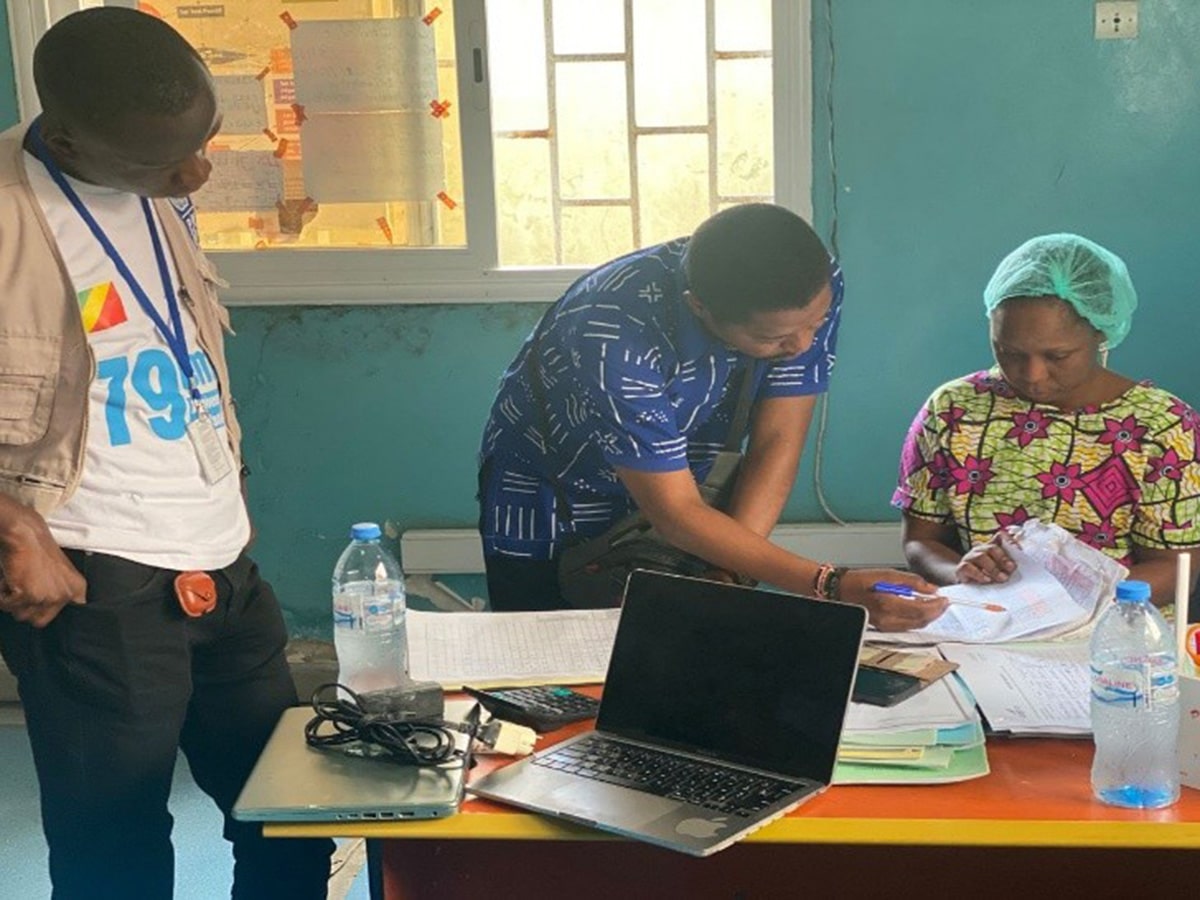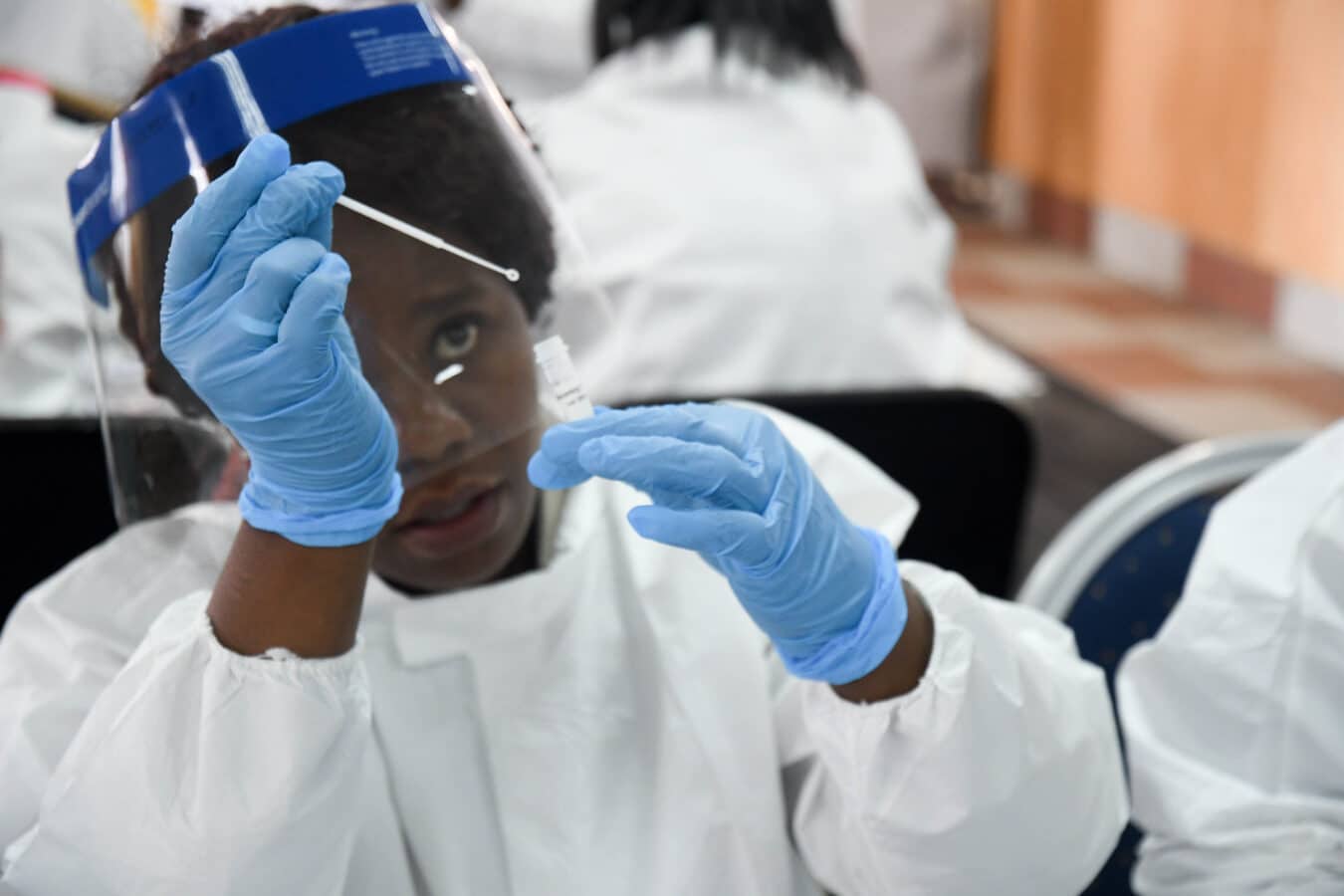On February 10, 2022, South Sudan inaugurated the country’s first Data Management Unit (DMU). ICAP at Columbia University was instrumental in supporting the development of this national health data hub, which promises to address data management and storage gaps realized amid the COVID-19 pandemic.
The DMU, which will be led by the Ministry of Health, will help centralize health hazards information and events, maintain national health records, organize and manage health data, and restructure data management systems for disaster preparedness and response.
Situated within the Public Health Emergency Operation Center (PHEOC) in South Sudan, the DMU will also share important health information gathered with relevant stakeholders, such as government officials and the public.
The establishment of the DMU was funded by the Center for Disease Control and Prevention (CDC).
The inauguration event coincided with the launch of revised national HIV response guidelines and five national laboratory policy documents. Attended by partner representatives, CDC country director and senior staff, and senior government officials, the Minister of Health Hon. Elizabeth Achuei Yol was featured as the chief guest. In her remarks, Yol called the DMU a milestone that reflects South Sudan’s progress and commitment towards improving the national health system. She acknowledged her appreciation of ICAP and other partners for continued support of the ministry.
Florence Bayoa, MA, ICAP country director in South Sudan, also attended the event. In her speech, she highlighted ICAP projects, interventions, activities, and achievements in the country, above all emphasizing ICAP’s commitment to collaboration with the ministry. Bayoa echoed the importance of the newly released national HIV guidelines and reiterated ICAP’s support of DMU operational needs, stressing that the data hub will also act as a capacity-building center to enable other valuable departments within the country to generate quality data.
At the event, Sudir Bunga, PhD, country director for CDC in South Sudan, commended all partners, including the World Health Organization, ICAP, The World Bank, and the Japan International Cooperation Agency, for working together to ensure that South Sudan health systems and structures are improved to effectively respond to public health disasters. He affirmed CDC’s commitment to supporting the in-country health response, working directly with the Ministry of Health and other health partners to achieve future milestones.
About ICAP
A major global health organization that has been improving public health in countries around the world for nearly two decades, ICAP works to transform the health of populations through innovation, science, and global collaboration. Based at Columbia Mailman School of Public Health, ICAP has projects in more than 30 countries, working side-by-side with ministries of health and local governmental, non-governmental, academic, and community partners to confront some of the world’s greatest health challenges. Through evidence-informed programs, meaningful research, tailored technical assistance, effective training and education programs, and rigorous surveillance to measure and evaluate the impact of public health interventions, ICAP aims to realize a global vision of healthy people, empowered communities, and thriving societies. Online at icap.columbia.edu


